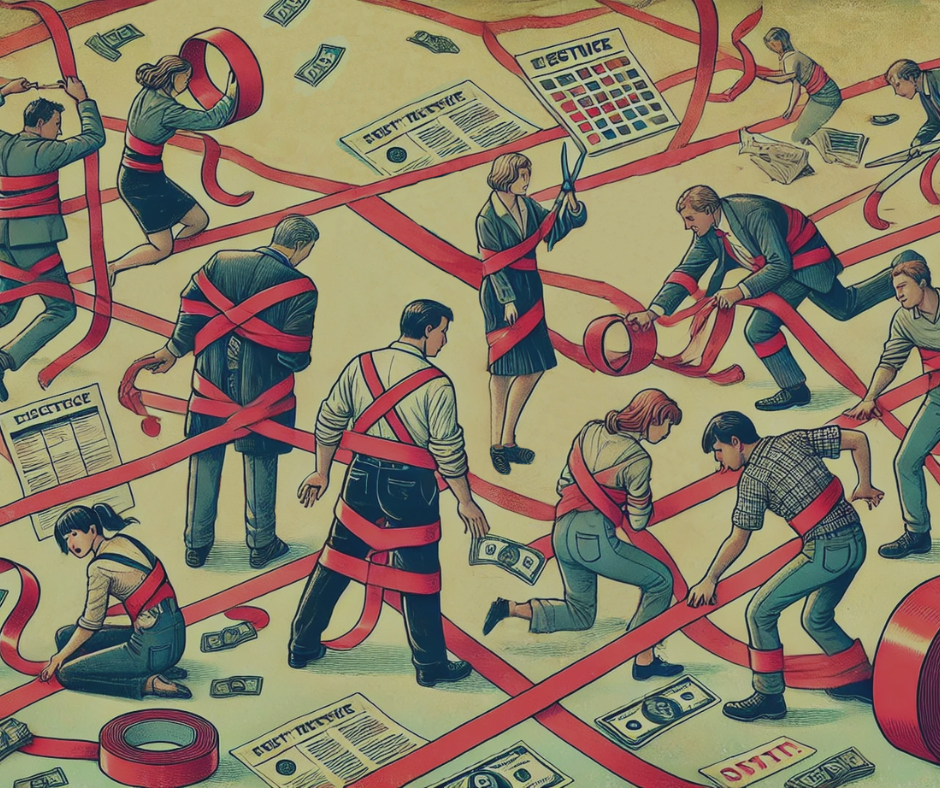The lockdown not only drags down our standard of living but also explodes government debt, we need free markets now more than ever now that unemployment is on the rise, argues Imre Wessels
It is difficult to comprehend how much the world has changed in so little time. Here’s what happened:
- Researchers mention a high mortality rate based on a group of hospitalized COVID-19 patients.
- The media picks up the figure and asks politicians to respond.
- Politicians overreact because if the worst-case scenario doesn’t happen, they take credit for averting catastrophe.
- Massive unemployment, government bailouts, more power to the state.
Let’s put everything in perspective. The common flu kills 290,000 – 650,000 people worldwide annually. We don’t take any extreme measures (closing down businesses, telling people they can’t leave their home, travel bans, etc.) to prevent these deaths. Why not?
Part of the answer could be that we need to accept a certain amount of risk as part of life. Another part is the claim that COVID-19 is much more deadly than the common flu. But no one knows by how much since most people who display no or little symptoms don’t get tested.
If we only look at people with severe symptoms, then we will overestimate the fatality rate. Dr. Eran Bendavid and Dr. Jay Bhattacharya looked at research where population wide testing was conducted. One example is the Italian town of Vò, where the entire population (3,300 people) got tested. 90 turned out to be positive, a prevalence of 2.7%.
If we apply the same prevalence on the whole province (955,000 people) then there should have been 26,000 COVID-19 cases. How many were reported? Only 198. The Italian mortality rate of 8% might be a factor of 130 times lower. That means the real fatality rate is around 0,06%, which is like the common flu.
What we know for sure is that this virus mainly impacts elderly people with pre-existing comorbidities (illnesses). 48.6% of Italian deaths had 3 or more pre-existing comorbidities before they had COVID-19. Many elderly patients with comorbidities might be dying ‘with’ the virus but not ‘from’ it. Only 1.2% of deaths had no pre-existing condition. Elderly people with pre-existing comorbidities are also far more likely to get hospitalized.
These findings mean that we can pinpoint policies to help those groups who are most at risk by encouraging them to stay at home. Having a clear picture who is most at risk means that the rest of us can get back to work, while still taking necessary precautions. Extending the lockdown will put more business on extensive government support, thereby further zombifying the economy with businesses that would have gone bankrupt whether there was a lockdown or not.
This zombification not only drags down our standard of living but also explodes government debt. Government debt sucks out resources from the productive sector and into the government sector and their zombie businesses. The bigger the unproductive sector of the economy, the more difficult it will become to rebound the economy. We need free markets now more than ever now that unemployment is on the rise.
Even during this coronacrisis we are seeing how businesses are providing us with necessary goods and services. How safety regulations are suddenly suspended in the name of safety, allowing brewers to produce hand gels for example. During this pandemic we need less regulations, not more. We need a return of single use plastic bags, allow more test kits on the market and deregulation of drug possession to make sure prisons do not get overcrowded. This lockdown is an overreaction of global proportions but as long as we are flattening the curve, we should also be thinking of flattening the state.
Originally published here.
Author: Imre Wessels is active for the Fight Corona Not Liberties campaign, an initiative of the Consumer Choice Center.
The Consumer Choice Center is the consumer advocacy group supporting lifestyle freedom, innovation, privacy, science, and consumer choice. The main policy areas we focus on are digital, mobility, lifestyle & consumer goods, and health & science.
The CCC represents consumers in over 100 countries across the globe. We closely monitor regulatory trends in Ottawa, Washington, Brussels, Geneva and other hotspots of regulation and inform and activate consumers to fight for #ConsumerChoice. Learn more at consumerchoicecenter.org




